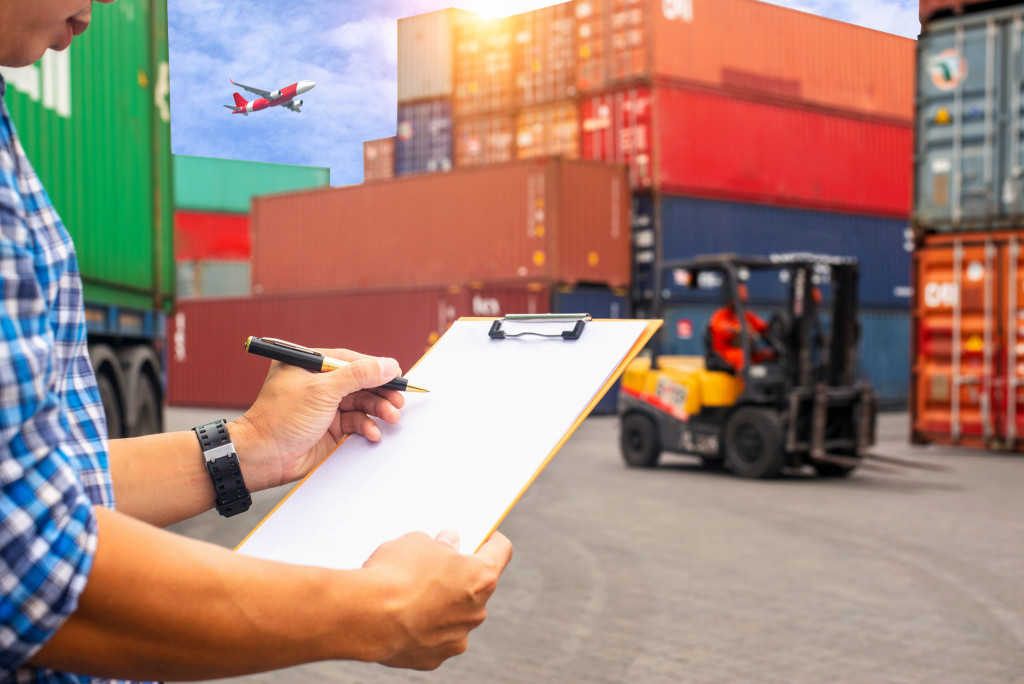Logistics is an often overlooked but critically important part of running a successful business. It involves managing and coordinating resources, materials, and personnel to ensure that goods are transported promptly and cost-effectively. Without careful consideration, the cost of logistics can quickly become prohibitively expensive for many businesses.
The International Federation of Freight Forwarders Associations (FIATA) estimates that nearly 10% of the global trade value is related to freight costs, with transportation costs making up 70% of this amount. In addition, logistical inefficiencies caused by delays or mismanagement can lead to additional charges that are difficult to quantify. For example, if shipments arrive late due to poor transport planning or horrible weather conditions, customers may eventually lose trust in a company’s ability to deliver products on time. This could lead to fewer sales and lost revenue due to decreased customer loyalty and confidence in the brand.
Additionally, research shows that transportation costs account for more than 8% of total expenditures for many companies across all industries. There are specific sectors where this percentage is even higher – such as automotive suppliers – where transportation costs make up 23% of expenditures. These figures suggest that businesses must invest heavily in logistics if they want their operations to remain competitive while keeping costs at a minimum.
However, in-house logistics can be costly, making third-party services more beneficial for businesses. Still, this comes with certain risks and considerations, making these security measures necessary to ensure safe and secure operations.
Access to Monitoring Systems
When partnering with third-party logistics vendors, businesses should ensure that they have access to monitoring systems that provide real-time visibility of all shipments. With this access, companies can track the status of their shipments, monitor transport conditions, and receive performance data promptly. This allows companies to anticipate potential delays or problems better and take corrective action if needed. Furthermore, by having access to these monitoring systems, businesses can supplement their in-house tracking capabilities, which helps them remain competitive in an increasingly complex global market.
In addition to providing access to real-time data and analytics, businesses should also look for contracts with third-party vendors that offer end-to-end logistics services. This service will allow companies to outsource their entire supply chain from the point of origin through final delivery at the destination. This can help businesses maintain efficiency while reducing costs since they will not have to manage multiple vendors or contract-specific carriers for each journey segment.
When selecting third-party logistics providers, businesses should also consider their reputations for reliability and quality control. Companies should look for established vendors with long track records who consistently deliver goods on time and maintain high standards in terms of safety and security protocols. Additionally, businesses must evaluate the pricing structures offered by different service providers — ensuring they are getting the best value while minimizing unexpected fees or costs associated with last-minute changes or delays in transit.
GPS Tracking Devices

Another measure businesses should consider is outfitting their vehicles with GPS package tracking devices for cargo. This technology can help companies monitor the location and speed of their shipments and provide detailed analytics about routes taken, fuel consumption rates, and other vital details. With this data, businesses can make route adjustments to save on fuel costs and identify unsafe driving practices that could lead to accidents or delays.
Lastly, businesses must ensure they have adequate insurance coverage in place when working with third-party logistics providers. Insurance policies provide financial protection against losses due to theft, damage, or natural disasters. Companies should review their contracts with service providers carefully to make sure they are adequately covered in the event of an unforeseen incident during transit.
Business Insurance
Businesses must ensure adequate insurance coverage when working with third-party logistics vendors. Taking out business insurance is crucial to protect against unforeseen losses due to theft, damage, or natural disasters. Companies risk bearing the total financial cost of these losses without proper insurance and cannot recoup the money invested in their operations.
It is important to note that depending on the type of business, having a basic insurance policy may not be enough. Companies may need additional coverage, such as transit or product liability insurance, to cover potential damages or losses during transit. For example, if goods are damaged while being transported due to improper packaging or mishandling, companies would be unable to recoup their costs without adequate transit insurance coverage. Companies should also consider getting product liability insurance if they are selling products internationally, as this policy covers any potential liabilities associated with the products being sold abroad.
It is also vital for businesses to research different providers and policies when taking out business insurance. Choosing the right provider is critical since it can help reduce costs while ensuring sufficient coverage for all operations. Additionally, businesses should review their contracts and policies regularly to ensure that all aspects of the agreement are still valid and up-to-date and that there are no hidden fees or costs involved with changes in service or coverage levels.
Final Thoughts
When selecting third-party logistics services, businesses must weigh the benefits and risks associated with these solutions. Utilizing an experienced third-party provider can help reduce costs while improving service quality, but that comes with specific security considerations. Companies should ensure access to monitoring systems and GPS tracking devices to monitor shipments in transit and take out adequate insurance coverage to protect against potential losses or damages due to theft, mishandling, or natural disasters. These measures can help companies get the most out of their logistics operations while ensuring secure operations.

